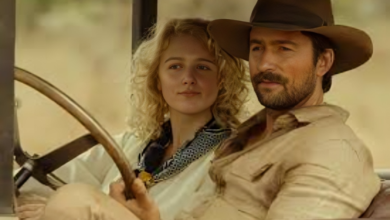Kano A Comprehensive Guide to Nigeria’s Historic City

Kano, one of Nigeria’s oldest cities, is a major commercial and cultural hub in West Africa. As the capital of Kano State, it has a rich history that dates back over a thousand years. It has long been a center for trade, politics, and religion, playing a crucial role in the trans-Saharan trade routes. Today, Kanos is a vibrant metropolis that blends tradition with modernity, making it an essential part of Nigeria’s development.
In this article, we will explore the city’s history, economy, culture, tourist attractions, and more. Whether you are planning a visit or just curious about Kanos, this guide will provide you with all the information you need.
History of Kano
Early History and the Founding of Kano
Kano has a long and fascinating history that dates back to around 999 AD. It was originally settled by the Gaya people, but it later became part of the Hausa Kingdoms. According to historical records, Kano was founded by Bagauda, a prince from the Hausa state of Daura. The city became an important trading center due to its strategic location along trans-Saharan trade routes.
Kano as a Trade Hub
During the 15th and 16th centuries, Kanos became famous for its leatherwork, textiles, and agricultural products. Merchants from North Africa, the Middle East, and Europe traveled to Kano to trade goods such as gold, salt, and kola nuts. The city’s economy flourished, and it became a powerful emirate in the 19th century under the leadership of Emir Ibrahim Dabo.
Colonial Era and Independence
The British colonized Kanos in 1903, making it part of the Northern Nigeria Protectorate. Despite colonial rule, Kanos remained an important economic and political center. After Nigeria gained independence in 1960, the city continued to grow and expand, becoming one of the largest urban centers in the country.
Geography and Climate
Location and Landscape
Kanos is located in northern Nigeria, approximately 840 km (520 miles) northeast of Lagos. It lies within the Sudan Savannah region, characterized by open grasslands and scattered trees. The Jakara River flows through parts of the city, providing water for agriculture and domestic use.
Climate and Weather Patterns
Kanos has a tropical savanna climate with distinct wet and dry seasons:
- Dry Season (October – April): The harmattan winds bring dry, dusty air from the Sahara Desert, leading to cooler temperatures at night and hot days.
- Rainy Season (May – September): This period experiences heavy rainfall, with August being the wettest month. The rains support agriculture and improve water availability.
Despite its generally hot climate, Kanos remains an attractive destination due to its historical sites and vibrant culture.
Economy and Business
Trade and Commerce
Kano is one of the largest commercial centers in Nigeria, known for its thriving markets and industrial sectors. The city has a strong economy based on:
- Agriculture: Kanos produces crops such as millet, sorghum, rice, and groundnuts.
- Textile Industry: The city has a long history of weaving and dyeing fabrics, including the famous Kanos indigo-dyed cloth.
- Leatherwork: Kanos’s leather products, particularly its tanned goat and sheep skins, are exported worldwide.
Modern Business and Industrial Growth
Today, Kanos is home to numerous factories and businesses, including:
- Kanos Free Trade Zone (KFTZ): A government initiative to promote industrial development and attract foreign investments.
- Kanos Industrial Estate: Home to manufacturing plants producing goods such as cement, plastic, and food products.
With its strategic location and economic diversity, Kanos continues to be a key player in Nigeria’s economy.
Cultural Significance
Language and Ethnic Groups
The predominant ethnic group in Kano is the Hausa-Fulani, and the main language spoken is Hausa. However, due to its commercial nature, English and other Nigerian languages are also widely spoken.
Religion and Islamic Influence
Islam is the dominant religion in Kanos, and the city has a rich Islamic heritage. Many mosques and religious institutions play a vital role in shaping Kano’s cultural and social life. The Emir of Kanos, a traditional leader, holds significant influence in the community.
Tourist Attractions in Kanos
1. Kanos City Walls
Built during the reign of King Sakri Gijimasu (1095-1134 AD), these ancient walls protected the city from invasions and are an important historical landmark.
2. Gidan Rumfa (Emir’s Palace)
This historic palace, built in the 15th century, serves as the residence of the Emir of Kanos. It showcases traditional Hausa architecture and is a must-visit site.
3. Kurmi Market
One of Africa’s oldest markets, Kurmi Market is a bustling center for trading textiles, jewelry, and handicrafts.
4. Dala Hill
Dala Hill offers panoramic views of Kanos and is historically significant as the site of the city’s early settlement.
5. Kano Zoo and Wildlife Park
This park is home to various animal species and provides an excellent recreational experience for visitors.
Education and Institutions
Major Universities and Colleges
Kano is a center for education and research, with notable institutions such as:
- Bayero University Kano (BUK) – One of Nigeria’s leading universities.
- Kano State Polytechnic – A hub for technical and vocational education.
- Northwest University Kano – Another major higher education institution.
These institutions contribute to Kano’s intellectual and professional development.
Transportation and Infrastructure
Kano has a well-developed transportation network that connects it to other parts of Nigeria and West Africa.
- Aminu Kano International Airport (KAN) – Serves both domestic and international flights.
- Road Network – Highways link Kano to cities like Lagos and Abuja.
- Railway System – Plans are underway to improve railway connections for better trade and travel.
Food and Cuisine in Kano
Kano offers a variety of traditional dishes, including:
- Tuwo Shinkafa – A rice-based dish served with soup.
- Miyan Kuka – A popular soup made from baobab leaves.
- Kilishi – Spicy dried meat similar to beef jerky.
The local cuisine reflects the rich Hausa-Fulani traditions of Kano.
Festivals and Events
Kano hosts various cultural and religious festivals, such as:
- Durbar Festival – A grand celebration featuring horse parades and traditional music.
- Eid Celebrations – Marking the end of Ramadan with communal prayers and feasts.
These events attract visitors and showcase Kano’s rich heritage.
FAQs
1. What is Kano famous for?
Kano is known for its ancient history, vibrant trade, textile industry, and the Durbar Festival.
2. Is Kano safe for tourists?
While Kano is generally safe, visitors should stay informed about local security updates and follow travel advisories.
3. What is the best time to visit Kano?
The best time to visit is during the cooler months (November – February), when temperatures are more comfortable.
4. How can I get to Kano?
You can reach Kano via Aminu Kano International Airport, road transport, or rail.
5. What languages are spoken in Kano?
The main language is Hausa, but English is also widely spoken.
Conclusion
Kano is a city of rich history, culture, and economic significance. Whether you are interested in exploring its historical landmarks, experiencing its lively markets, or enjoying its delicious cuisine, Kano has something for everyone. With its blend of tradition and modernity, the city remains one of Nigeria’s most important urban centers.



